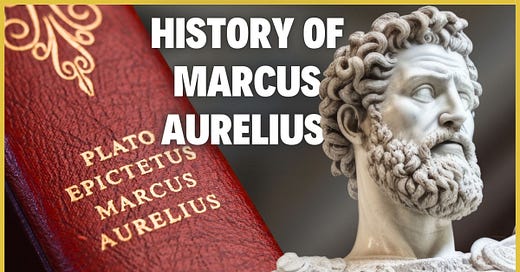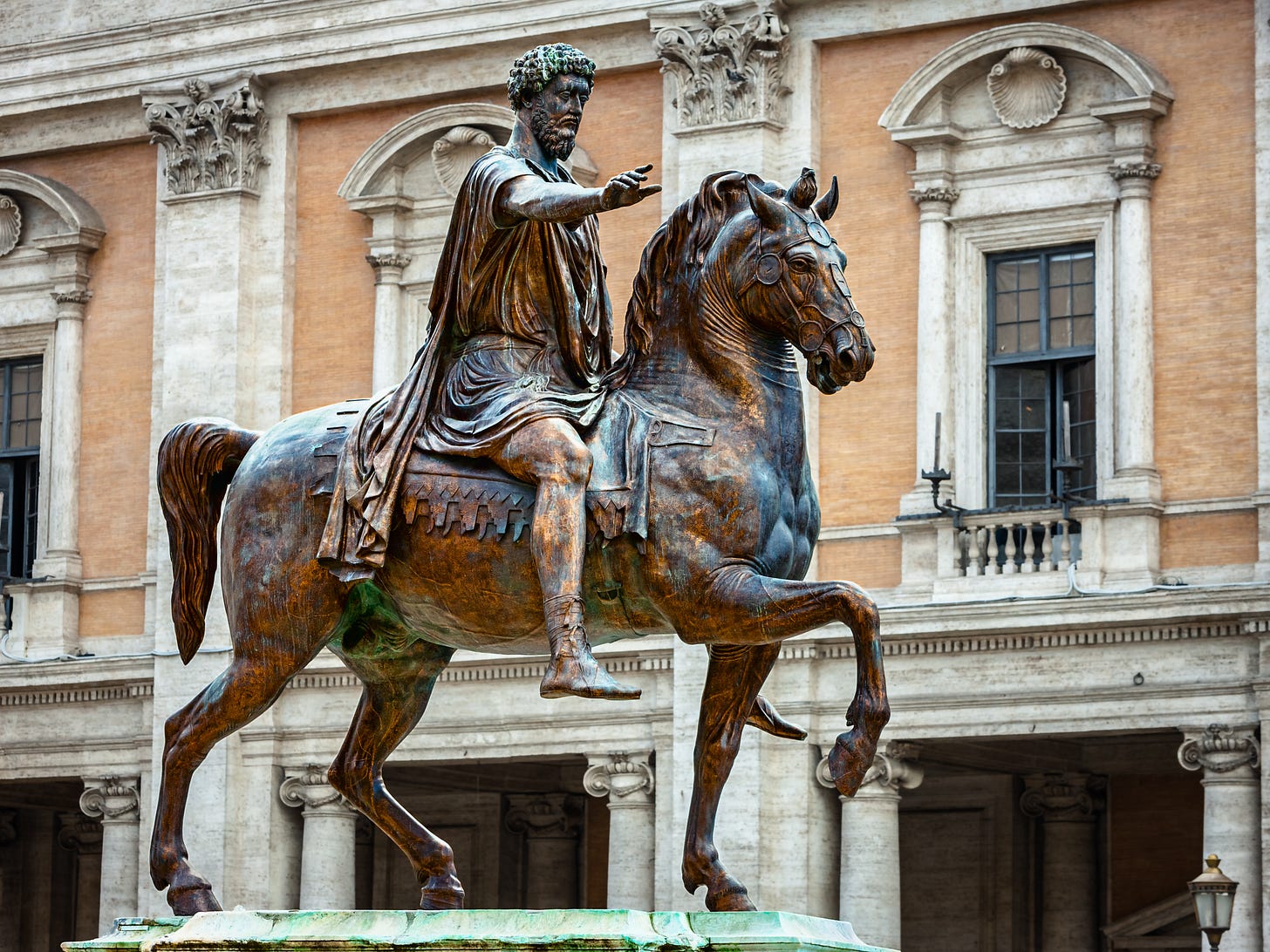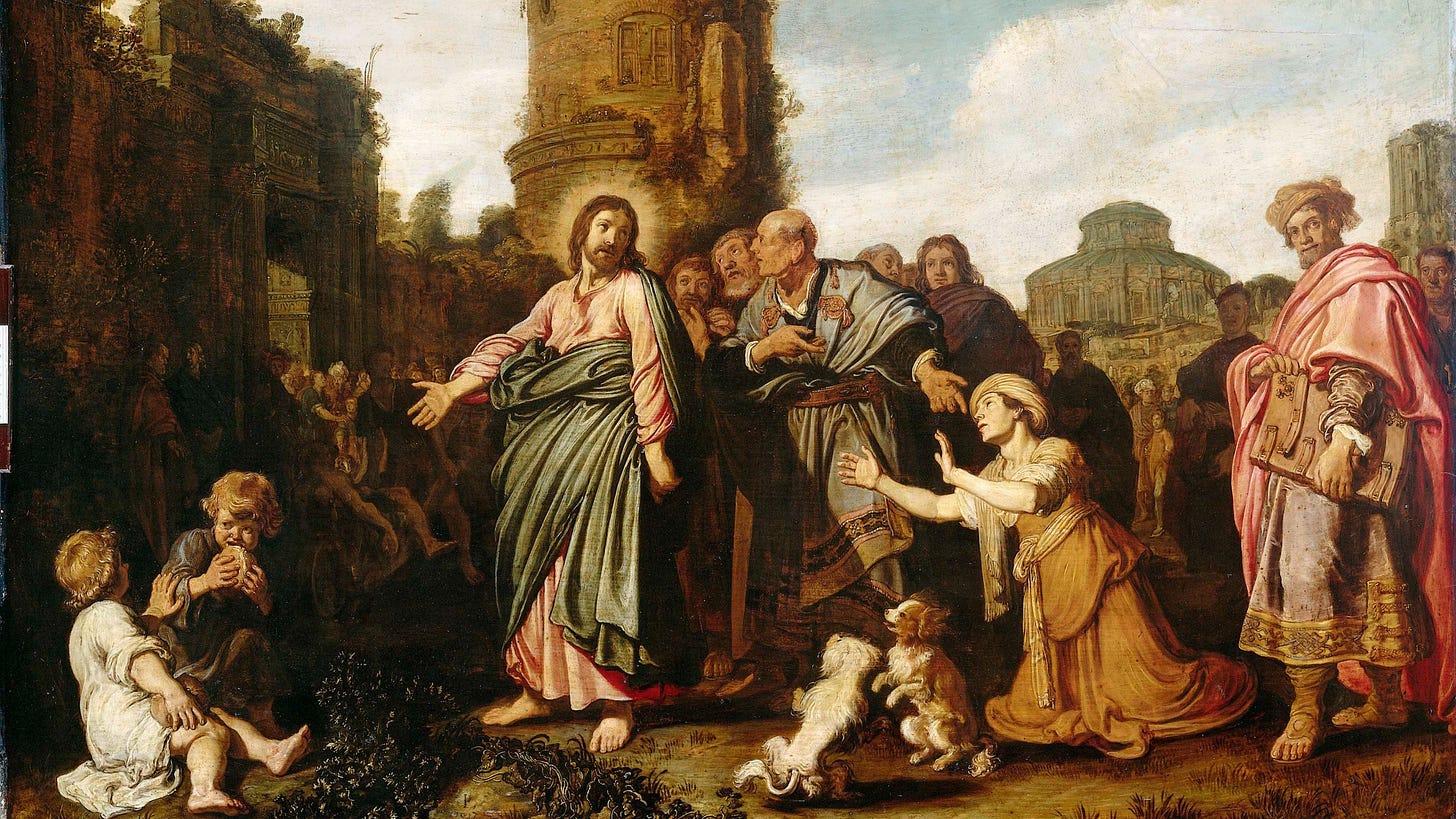History of Marcus Aurelius - "Christian Persecution" | "Slave Owner"
Harvard Classics Volume 2 Book 7
My Video: History of Marcus Aurelius - "Christian Persecution" | "Slave Owner"
Marcus Aurelius lived a very eventful life. Most of us know him as a Stoic philosopher. But he was also a slave owner, and many Christians would be put to death under his reign. He was adopted at 17 by a future emperor, and at 40, he would become the most powerful man in the world. At 59, his life is complete. Let’s discuss the history of Marcus Aurelius.
Hello everyone, and welcome to The Cause. Today, we will discuss the 8th book in the 2nd volume of the Harvard Classics series. The History and Philosophy of Marcus Aurelius Antoninus. He left a legacy that has lasted generations.
Let us start with his name…
Marcus Antoninus was born in Rome in 121 A.D. on the 26th of April. His father’s name was Annius Verus (anyous veerous), and he died when Marcus was very young in 124 A.D. So, Marcus would have been about 3 years old at the time.
His mother’s name was Domitia, and she was also called Lucilla. Antoninus Pius would later adopt Marcus, which appears to be part of a succession plan. Emperor Hadrian adopted Antoninus Pius, who was around 52 years old at the time. Hadrian would declare Antoninus Pius the successor to the Roman Empire. Antoninus Pius would adopt Marcus Antoninus (later known as Aurelius) at around the age of 17, on the same day that Hadrian adopted Antoninus Pius. Antonius Pius would also adopt Ceionius Commodus, who would become Marcus’s adopted brother. Hadrian established this adoption process on the same day to determine who the following rulers would be. Marcus’s real name at birth was Marcus Annius Verus after his father. Marcus would later take the name Marcus Aelius (eelious) Aurelius Verus. The name Aelius belonged to Hadrian, and the Aurelius came from Antoninus Pius. Marcus would later drop Verus from his name and eventually end up with what we know him by today: Marcus Aurelius Antoninus or simply Marcus Aurelius.
I hope that's not too confusing, but it took me a few readings to sort it all out in my head.
HISTORY:
Marcus started life off with an unfortunate situation, but was fortunate at the same time. His father dies when he is young, and he is left in the care of his mom. Now his mom was wealthy and would have connections to the noble individuals in Rome. She inherited a great fortune from her mother’s side and a large brick and tile factory just north of Rome. This factory supplied bricks to the monuments in Rome, including the Colosseum and others. Marcus would later inherit this factory as well.
Antoninus Pious would be Marcus’s uncle through marriage to his father’s sister. He married Marcus’s aunt Faustina. His uncle Antoninus would, fortunately, treat him very well. Marcus mentions this in his Meditations.
Marcus had the best education and training you could ask for during this time. By age 11, he takes on the “dress of a philosopher,” which was plain and simple. He would study hard and eventually stumble upon the Stoic sect. He also studied law, which is important for anyone who eventually leads an empire. He speaks highly of his teachers in Meditations, and it is clear that most of them had a profound impact on who he would eventually become. He highly valued this education and seemed to have thoroughly enjoyed the learning process.
Hadrian, Pius, and Marcus:
Hadrian would die in July of 138 A.D., and Antonius Pius would succeed him. After that, Marcus married Faustina, the younger, who was the daughter of Antonius Pius and Faustina the Elder. The uncle who adopted him. That would make Faustina his cousin, so they kept it tight in the family.
They would have their first daughter in 147 A.D. Soon after, Marcus would receive the title of Caesar from Antoninus Pius and be associated with the ruling family.
So, did he marry out of love, or was he playing chess in the game of life? It is left up to interpretation. It is said that Antoninus Pius and Marcus had a fantastic relationship, and Pius loved Marcus like his own son.
Antonius Pius would die in March of 161, and the two heirs, Marcus and his adopted brother Commodus, would both become emperors. This would be the first time in Roman history that two emperors would reign together. It is said that,
“Commodus was an indolent man unworthy of his station. Antoninus however bore with him, and it is said that Commodus had sense enough to pay to his colleague the respect due to his character. A virtuous emperor and a loose partner lived together in peace.”
Trouble would strike his reign in two blows during the first few years. One was the war with the Parthians, which they would win in 165 A.D. The other was a plague that swept through Rome and Italy, eventually spreading throughout Western Europe.
A third issue would arise in the north. The barbarians above the Alps in the Germanic region would start to threaten the empire. Commodus would die in 169 A.D., leaving Marcus as the sole ruler. During the Germanic Wars, Marcus would live with the army along the Danube, specifically in Carnuntum, which is located in modern-day Austria. He would reside here for about 3 years until one of his generals in the east caught a little case of the “Benedict Arnold” and revolted against the empire.
Avidius Cassius declared himself Augustus and was shortly assassinated by some of his officers. Before he knew he was assassinated, Marcus would start making his way to Asia. On this trip to get his house back in order, his wife would die. She died at the foot of the Taurus Mountains in central Turkey.
Now, this is not in the book, but some juicy rumors about Faustina and Cassius resemble some soap opera drama. However, you can dive more into that if you are interested.
Marcus grieves his wife and is deeply moved by her passing. Questions have risen over the centuries about her fidelity and other nightly escapades that may have gone on behind Marcus’s back. But from history, I know of Rome, and judging by the standards of that period, we cannot expect the Roman standards of fidelity to be put on a very high pedestal. Things we think are wrong today have been considered acceptable in the past.
Marcus would set foot in Egypt and Syria, then he would head back to Rome. In 176 A.D., Marcus’s son, Commodus, started associating more with the empire and took on the name Augustus.
Christianity:
In 177 A.D., an event occurred that brought Christianity into the mix. Attalus and other Christians were put to death in Lyon, which is in the eastern central part of France. The governor there took it upon himself to torture and kill many of them, but from the letters of Eusebius, we find that he also reached out to the emperor (MA) for guidance on how to proceed. The letter from the imperial rescript says that the Christians were to be punished, but if they denounced their faith, they could be set free. The Roman Christians were treated more humanely and were just beheaded. The remainder would be fed to wild beasts in the amphitheater. A man named Sanctus is tortured, and the book says,
“Sanctus, as the letter says, was burnt with plates of hot iron till his body was one sore and had lost all human form but on being put on the rack he recovered his former appearance under the torture, which was thus a cure instead of a punishment. He was afterwards torn by beasts and placed on an iron chair and roasted. He died at last.”
This was not a good time for the Christians, and I often wonder what allows humans to become so divided that they can do this to one another.
George Long (The author of this little book) states this below.
“But the fact is certain that in the time of M. Antoninus the heathen populations were in open hostility to the Christians, and that under Antoninus’ rule, men were put to death because they were Christians.”
This is one of the most important concepts of history. We have the option at this point to cancel Marcus and delete him from history for the evil deeds he was associated with, or we can study both the good and the bad and learn from them.
The Germanic wars are still raging, so Marcus heads north again in 179 A.D. and they win a huge battle. During this period, Marcus would come down with a sickness and would die in the location we call Vienna nowadays. His death would come on the 17th of March in 180 A.D. He would be 59 years old.
His body would be elevated to the status of a god in Rome, and statues and busts would be made in his honor to keep his memory. Probably one of the most famous is the Antonine Column, which Commodus erected in his father's memory.
Two things to note here.
1. Why did Marcus not find a better ruler to succeed him, as Hadrian had done? He had to have known his son was not up to the task.
2. It is remarkable to think, but if Marcus’s father had not died, he would most likely not have been adopted by Antoninus Pius. And we would have never heard of him. Sometimes the universe works in ways we do not understand at the time, but it reveals a purpose that cannot be seen in the present.
History of “Meditations”:
The true title of Marcus’s work is unknown. He did not call his journal “meditations”. Xylander published the book’s first edition in Zurich in 1558. He published this book in Latin from a manuscript that included the twelve books; however, that manuscript has since been lost to history. The only other complete manuscript of the twelve books known to exist is in the Vatican Library. However, it lacks a title and does not include descriptions of the books. Three Florentine excerpts of his work are not complete but agree with the full version at the Vatican. No one can tell whether Marcus separated his journal into separate books or if one of the copiers of his work did this later on. However, it could have been just a stack of papers that he wrote on periodically, and after his death, they were compiled into a single work. No one knows for sure.
Conclusion:
Marcus lived a life that is worth examining. What is wrong in the present may have been acceptable in the past. What he wanted to do with his life is what is important. We all know what we should be doing, but it's hard to take the necessary action. Marcus’s life was not all rainbows and butterflies. It was smeared with the hate of barbarians, the corruption of generals, the death of family members, corrupt politics, and a son who would never live up to Marcus’s standards. In a sense, his life is our life. We will all, to a degree, experience the same issues and tribulations that he did.
I truly hope you enjoyed the history of Marcus Aurelius. This is a quick history, to say the least. If you'd like a few more details, I suggest checking out my friend Edward Gibbon’s series. If you find these posts enjoyable or helpful, please consider liking, subscribing, and leaving a comment down below so I can hear your thoughts. It has been a delight to engage with you.
We move on to Volume 3 next with Francis Bacon. We will discuss his Essays and Counsels. I think it is going to be a fun journey through those.
If you enjoy coffee just as much as you enjoy reading, consider trying my coffee. I roast all the coffee here in my roastery, package it, and ship it out to you with love! Read some amazing books, drink some excellent coffee, and I will see you next week!
The link to my website is available here.
Rob’s Coffee Website: cedarotacoffee.com
*Use Code "thecause" for 15% off on your first order.
Meditations - Marcus Aurelius
FAVORITE BOOKS:
• The Republic: Plato
• Plato/Aristotle Starter: Arthur Herman
• Alexander Hamilton: Ron Chernow
• The Hero of Two Worlds: Mike Duncan
• Washington: A Life - Ron Chernow
FAVORITE JOURNALS:
• Writing Journals
Listen or Watch Below.














I hope you enjoy the post! We always focus on Marcus's Meditations but rarely read into his history. It is well worth exploring. It makes his work that much more impactful. Stay blessed!
"But from history, I know of Rome, and judging by the standards of that period, we cannot expect the Roman standards of fidelity to be put on a very high pedestal. Things we think are wrong today have been considered acceptable in the past."
I really dislike this part, I was speaking with a Greek friend at some point about Marcus Aurelius after having read a copy of his meditations. It had some letters in the appendix, in one of them, addressed to one of his teachers, he talked about how much he loved him in a way that sounded like they'd had a sexual relationship. I brought this up to my friend saying it sounded like Marcus Aurelius was gay. He said it was normal back then for men to sleep together and that men often slept with boys too!
Going by the contents and from my friends comments, its likely that Marcus Aurelius was sexually abused by his teacher(s). My friend said it was a different time back then, they had different standards and didn't know that this was wrong back then and, that we shouldn't judge people from the past by today's standards.
I have the feeling that people may look back on this period we're going through right now in a couple of hundred/thousand years and say the same thing. The truth is that we know that these things are wrong now and I suspect the people in the past knew that they were wrong as well. It's just that there are a lot powerful people trying to normalise this (infidelity included) and I also think that this is probably what happened back then.
I imagine that those who weren't in power back then found these things to be just as scandalous as we find them today.
Anyway, great article. Keep it up!